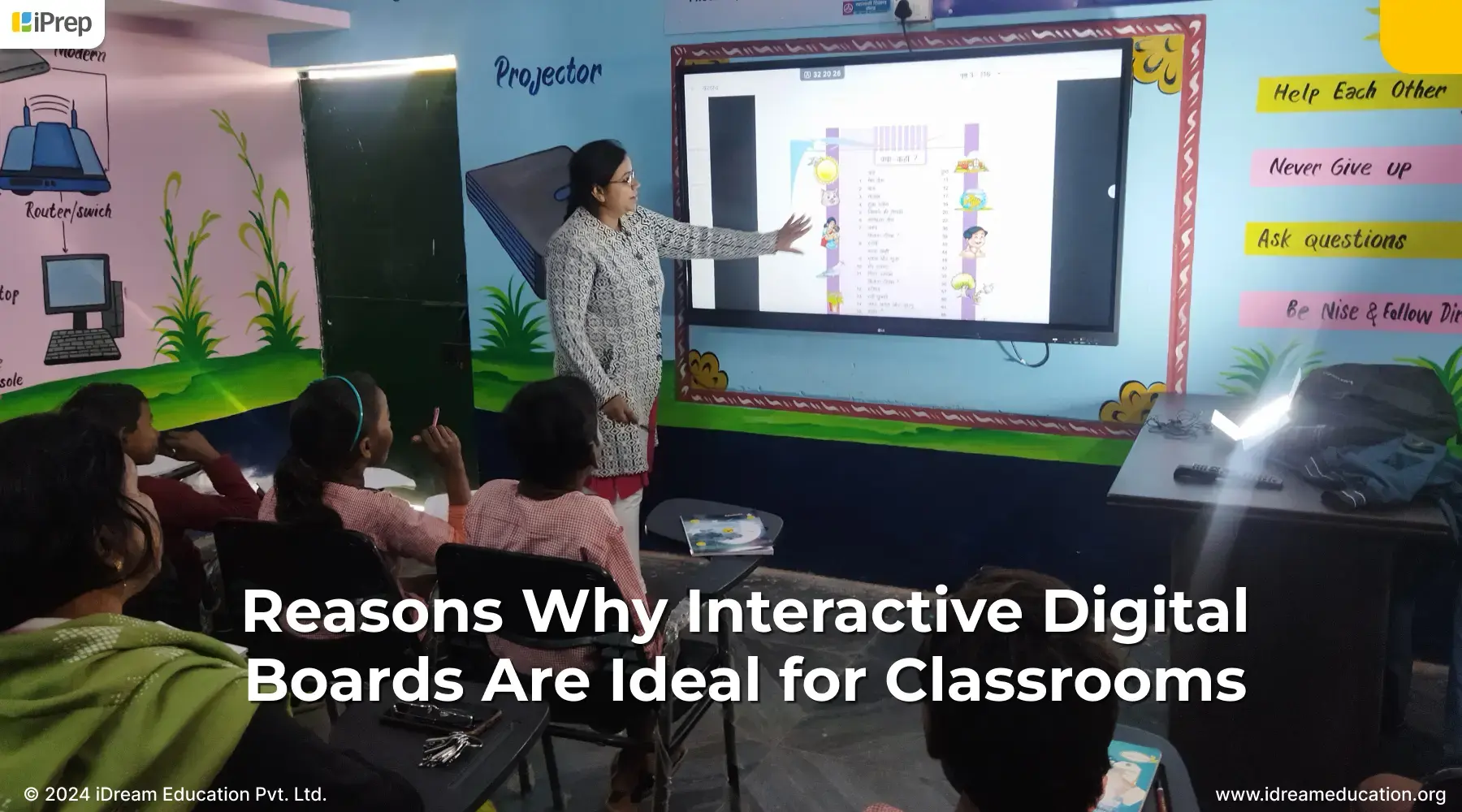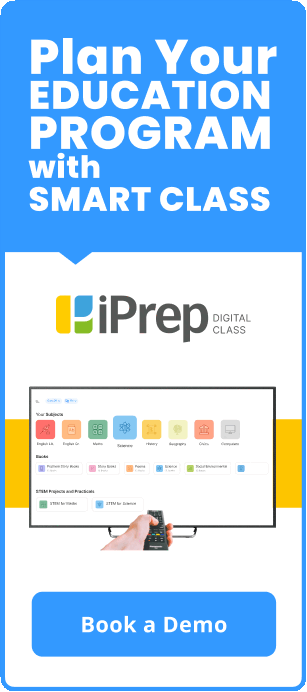Charting Progress: The Power of Impact Assessment for Educational Programmes, A Case Study of Meghalaya
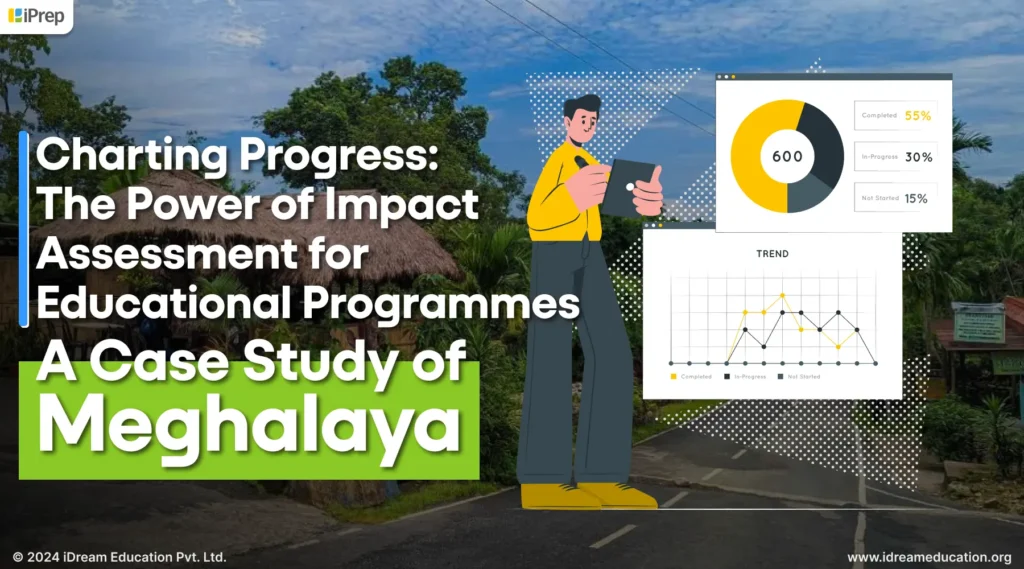
Assessments are the cornerstone of educational programs- gauging their impact and guiding progression. A flexible approach to assessments, rooted in a strong foundational base, is essential for addressing contextual challenges effectively. In this blog, we will narrate a compelling story of one of our key implementations, where assessments played a pivotal role in determining the journey, success and efficacy of the programme. This narrative shows resilience, innovation, and enterprise, presenting the synergy between technology and the age-old, raw challenges of education.
Digital Learning at East Jaintia Hills Meghalaya
In 2022, iDream Education was presented with an exciting opportunity to implement our smart class solution- iPrep Digital Class, in the remote district of East Jaintia Hills in Meghalaya. Spearheaded by the Deputy Commissioner of East Jaintia Hills, Meghalaya, Shri Abhilash Baranwal, and Shri. Jonathan Shylla, Addl. Deputy Commissioner, the ambitious project named “Ka Lawei,” meaning “The Future,” aimed to reshape digital education in the region. As part of the project’s initial phase, smart classrooms were established across several schools in the district. The objective was to harness educational technology to drive positive learning outcomes in the schools of the region.
The Unique Challenges of East Jaintia Hills, Meghalaya
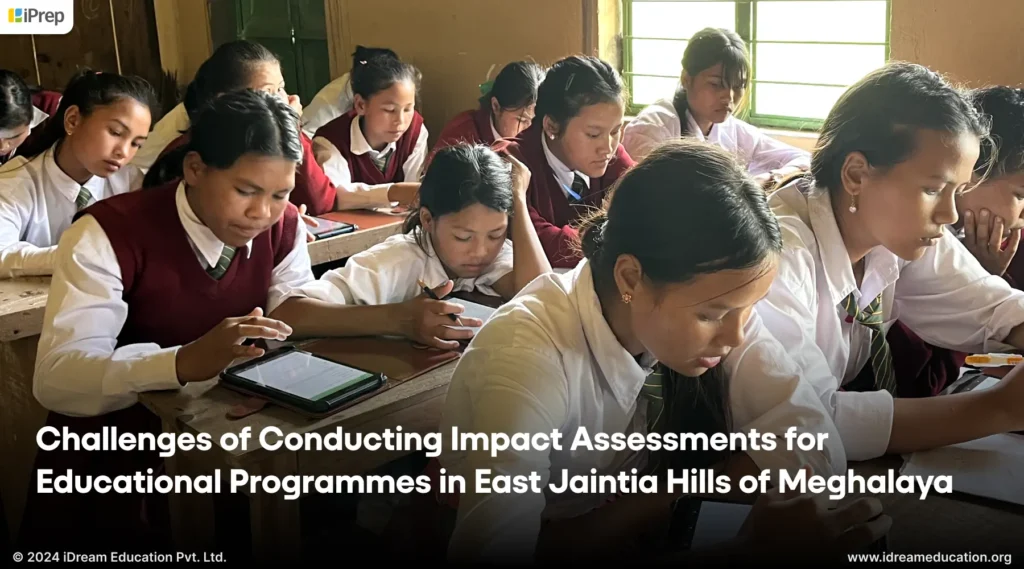
East Jaintia Hills, Meghalaya, presents a unique set of challenges that significantly impact access to education. The rugged terrain poses a formidable obstacle, hindering both physical access to educational facilities and the execution of educational initiatives. The district’s economic landscape is dominated by coal mining, with the majority of the population either owning or working in coal mines. The reliance on the industry persists from generation to generation, shaping attitudes towards education. Consequently, while the current generation attends school, there is a pervasive lack of motivation for learning. This is compounded by the absence of awareness among parents about the long-term benefits of education.
The district schools face a dearth of innovation and creativity in teaching methods, largely due to sole reliance on textbooks. This results in a pedagogical approach that prioritizes rote learning over critical thinking and practical application of knowledge. Consequently, students encounter learning gaps as they progress through school, with many opting to drop out after completing class 8. A notable challenge in East Jaintia Hills is the lack of English proficiency among students and teachers. Although English is the official medium of instruction, the reality is starkly different. Teaching and learning happens in in the local dialect of Khasi- Pnar.
Addressing these challenges required a concerted effort to not only improve infrastructure but also to foster a culture of innovation and continuous learning.
How Assessments became Central to Addressing the Challenges
The Need for Assessments
The project started off with great enthusiasm, implementing iPrep Digital Class with English Medium Content for grades 8 to 12, aligned with the Meghalaya State Board curriculum. However, after two months, it became clear that the approach wasn’t delivering the desired learning outcomes. Despite students’ enjoyment of animated videos and interactive quizzes, their overall progress fell short of expectations. Recognizing a significant learning gap among students, we decided to conduct baseline assessments to accurately gauge their current levels and devise effective interventions.
A problem arises: Conducting Regular Assessments in a Rugged Landscape
The decision was made to conduct monthly assessments involving approximately 5000 students, a significant undertaking. Initially, assessments were conducted using the traditional pen-and-paper method. However, it quickly became apparent that managing the logistics of distributing 5000 question papers and grading the responses was impractical and time-consuming. Recognizing the need for a more efficient approach, the transition to digital assessments using tablets was proposed. Yet, the challenges were far from over. East Jaintia Hills’ featured a rugged terrain, characterized by rough roads and adverse weather conditions. This raised concerns about the feasibility of transporting tablets to schools and ensuring they were adequately charged for use.
A Box of Innovation: Tablets in a Suitcase
A clever innovation provided a solution to these challenges. A specially designed suitcase with slots to accommodate the tablets was introduced. Equipped with wheels at the bottom, the suitcase could be effortlessly maneuvered, akin to navigating a trolley at an airport. For charging, a Charging Rack was distributed, with each team member housing a unit at their home. This setup enabled tablets to be charged overnight using the rack and then transported to schools in the suitcases.
With the implementation of digital assessments, momentum began to build. These assessments afforded teachers instant access to results and reports, streamlining the process considerably. Analysis of the baseline assessments revealed more than 90% of students were performing at levels that are at least 3-4 grades below their current grade level. These reports became the principal basis for helping us strategise and implement the next stage of our journey- bridging the learning gaps.
A Bridge Course to Close Learning Gaps
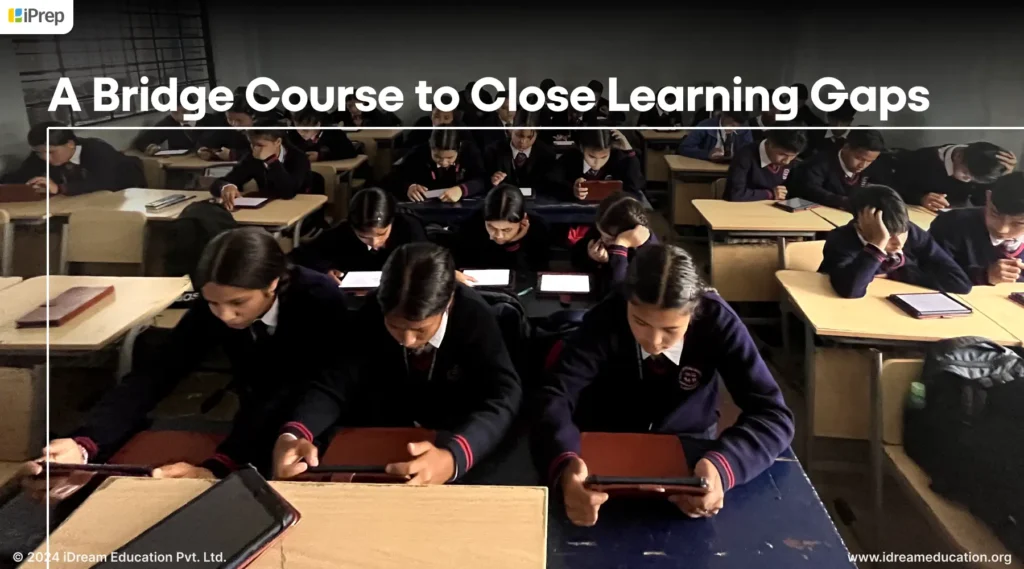
A bridge course was devised to guide teachers on which topics to cover from previous grades before delving into the current grade’s curriculum. As students engaged with digital content in classroom settings, they were to undergo monthly assessments on the topics they are learning. Individualized data recorded by tablets generated reports shared with teachers monthly, empowering them to support students.
Tailored to each school’s academic plans and baseline assessment results, a Comprehensive Bridge Course was crafted. This course comprised of interconnected videos spanning grades 6 through 10, with a focus on Math, Science, and Social Science. In addition to video recommendations, the bridge course features targeted practice exercises to ensure reinforcement of concepts learnt. Through iPrep on Smart TV, teachers could seamlessly navigate between classes and implement bridge courses by accessing content from any grade by simply following the sequence of video lessons outlined in the bridge course document.
As a next step, to save time for teachers, we integrated the Bridge course directly into the iPrep app. Now, teachers could easily access the content by simply tapping into the Bridge Course tab on the iPrep platform.
Remarkable progress both in in terms of usage hours and learning outcomes was witnessed after the implementation of the bridge course. As the cycle of assessments, reports and smart class teaching continued, learning gaps were bridged and grade level outcomes were met.
Conclusion
Our experience in the East Jaintia Hills of Meghalaya underscores the importance of Impact Assessment for educational programmes. These assessments serve as the cornerstone for planning strategies and provide a metric for measuring success. Coupled with digital solutions, they streamline processes, save time, and improve efficiency. Flexible assessment models tailored to real-world needs are essential. iDream Education offers robust yet adaptable impact assessment for educational programmes to address real-world challenges and ensure the success of your educational programs.





